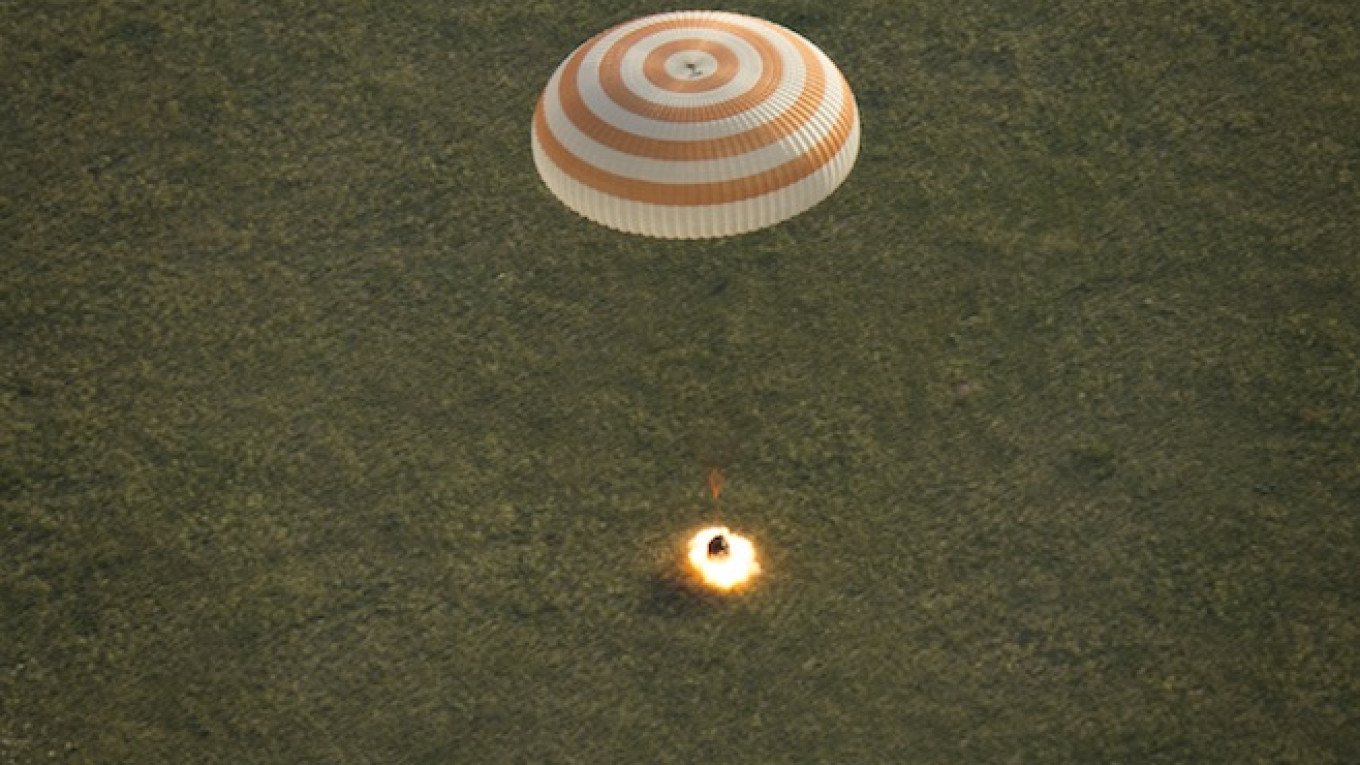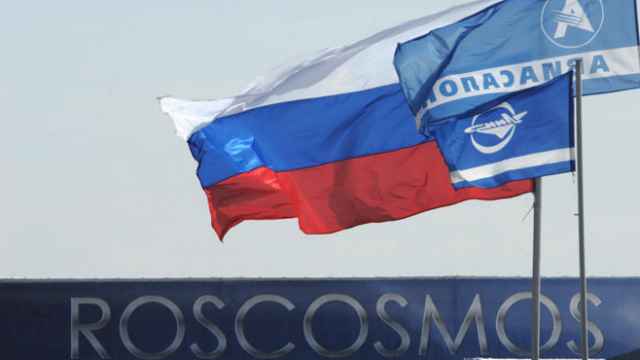ALMATY — Three astronauts landed safely in the steppes of Kazakhstan on Thursday, ending their 199-day mission after an unexpected "bonus month" aboard the International Space Station, NASA Television showed.
"It was a textbook homecoming for the Expedition 43 crew," a NASA presenter said after the descent capsule of the Soyuz TMA-15M spacecraft touched ground amid waving feathergrass at 7:44 p.m. local time (1:44 p.m. GMT), some 92 miles southeast of Zhezkazgan in central Kazakhstan.
"They have landed!" read a big screen at Russia's Mission Control outside Moscow. The capsule, charred by extreme heat on re-entry, landed upright, allowing search and recovery teams to expedite the crew's evacuation.
Russian cosmonaut Anton Shkaplerov, followed by Samantha Cristoforetti of the European Space Agency and Expedition 43 Commander Terry Virts of NASA, were carried and put on semi-reclined chairs a few minutes later for a breath of fresh air under a setting sun.
A smiling Virts showed a "thumbs up" sign as a medical worker checked his pulse and blood pressure. "Everything worked by the second, step by step, the guys were great," Shkaplerov said.
The return of the crew from the $100 billion, 15-nation ISS had been delayed for a month after a rocket failed to deliver a Progress cargo craft on April 28. It harmlessly fell into the Pacific Ocean in early May.
Virts said before departing from the ISS that the extra month in space amounted to "bonus days" for the crew. Their mission had been extended to minimize the amount of time the station would be half-staffed.
The crew's departure left Russian cosmonauts Gennady Padalka and Mikhail Korniyenko and NASA astronaut Scott Kelly on their own until at least July 23, when cosmonaut Oleg Kononenko, NASA's Kjell Lindgren and Japan's Kimiya Yui are due to launch.
Korniyenko and Kelly are about two and a half months into a planned year-long stay on the station, a first for the 15-nation program. NASA is currently interested in accumulating medical data about the long-term effects of microgravity in a space station as it lays the groundwork for eventual human missions to Mars.
Virts, 47, who had one previous space shuttle mission before flying to the space station last November, turned over command of the station to Padalka, 56.
Padalka, the first four-time ISS commander, will return to Earth in September after a cumulative total of some 878 days in orbit, more than any other person.
The launch of the next crew, which had been slated for late May, was postponed for two months after the loss of the Progress.
The belated homecoming leaves Cristoforetti as the new record-holder for the single longest spaceflight by a woman, eclipsing NASA's Sunita William's 195-day flight in 2006-2007.
A Message from The Moscow Times:
Dear readers,
We are facing unprecedented challenges. Russia's Prosecutor General's Office has designated The Moscow Times as an "undesirable" organization, criminalizing our work and putting our staff at risk of prosecution. This follows our earlier unjust labeling as a "foreign agent."
These actions are direct attempts to silence independent journalism in Russia. The authorities claim our work "discredits the decisions of the Russian leadership." We see things differently: we strive to provide accurate, unbiased reporting on Russia.
We, the journalists of The Moscow Times, refuse to be silenced. But to continue our work, we need your help.
Your support, no matter how small, makes a world of difference. If you can, please support us monthly starting from just $2. It's quick to set up, and every contribution makes a significant impact.
By supporting The Moscow Times, you're defending open, independent journalism in the face of repression. Thank you for standing with us.
Remind me later.






